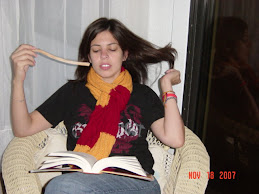No, I am
not going to use this as a forum to determine who is right about evolution. I am not going to waste this opportunity to
talk about which came first; the chicken, or the egg, or the dinosaur, or The
Doctor. That is not at all the kind of
evolution that I am talking about the kind of evolution that fascinates me. The kind of evolution that, given much better
circumstances, I would be writing a master’s thesis about. What I am going to talk about is the
evolution of ideas.
“Everything flows, nothing stands still.” This quote by Heraclitus (yeah, I’ve never
heard of him, either) appears to be the root of the saying, “the only constant
is change,” and all the other variations thereof. While we may apply it to the various stages
of life, I think that this applies to ideas as well.
One only has to look at Christian history to see this. As Christianity expanded to other lands, other
interpretations began to be used as norms.
Christians split into Eastern Orthodoxy and Roman Catholicism. This continued with the formation of churches
like Coptic and Marinates. Then, in
1517, the monk Martin Luther, frustrated with the decadence lifestyles and
corruption of Church officials, wrote The
Ninety-Five Theses, originally meant as a criticism to shake up the pope at
the time. This further evolved the
theology of Christianity.
Even within a single faith, such as Roman Catholic, one can
see we are ever evolving to meet an ever-changing world. The Second Vatican Council is a big example,
but the more recent re-structuring of some of the wording of the Mass is an
even bigger example.
The idea of pro-feminism is also evolving. As I have stated before, I think the idea is
thousands of years old. Exodus, the book
in the Bible that tells us of Moses, also tells us of his sister, the
prophetess Miriam, and his wife, the mystic Zipporah. It is these women that Moses often turn to
for consult. Abrahamic tradition
(Jewish, Christian, Muslim) continues the story of women who were on equal
ground as the main male characters.
As the Feminist Revolution dawned, it’s seemingly
anti-establishment attitude seemed to be a direct attack on mainstream
Christianity. About a decade later, Blessed
Pope John Paul II (santo subito)
greatly aided the further evolution of Catholic thought by writing about and
fighting for women’s rights. In “A
Letter to Women,” he writes;
“Thank you, women who
work! You are present and active in every area of life —social, economic,
cultural, artistic and political. In this way you make an indispensable
contribution to the growth of a culture which unites reason and feeling, to a
model of life ever open to the sense of "mystery," to the
establishment of economic and political structures ever more worthy of
humanity.”
To end, I challenge you to reflect on your own ideas about
Christianity and feminism and how you too can evolve.

